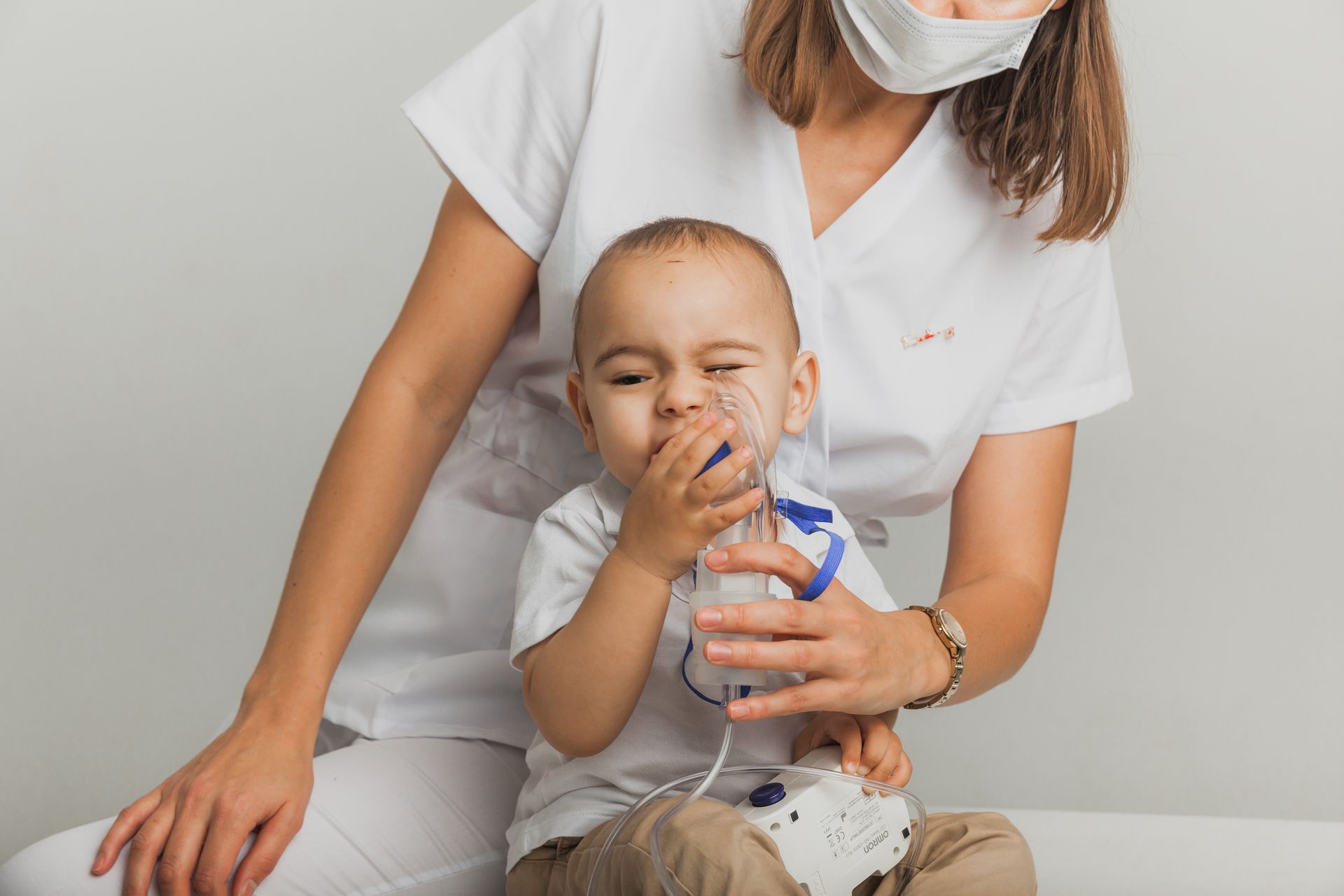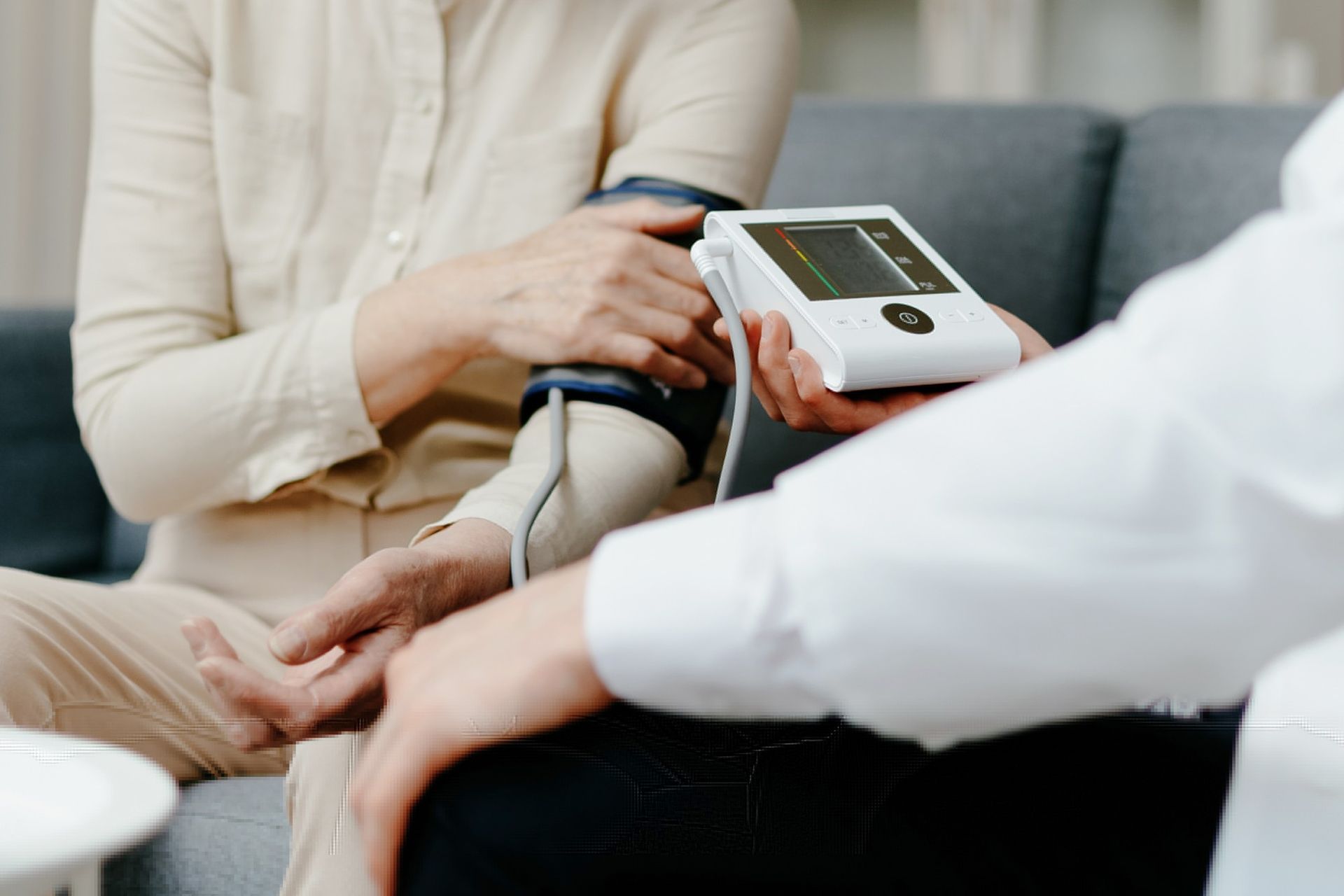In the world of pediatric health,
Respiratory Syncytial Virus (RSV) often lurks in the shadows, striking when you least expect it. Understanding its symptoms, treatment options, and the factors driving its prevalence is vital to every parent’s quest to protect their little ones. Join us as we demystify RSV, empowering you to navigate its challenges with knowledge and confidence.
Unmasking RSV Symptoms: What to Watch Out For
At some point, as a parent, you may have asked the question: What are the symptoms of RSV? Recognizing the
signs that your child may have RSV is crucial for timely intervention and effective management. The manifestations may be subtle in infants and toddlers, ranging from mild, cold-like symptoms to severe respiratory distress. Keep an eye out for these RSV symptoms in toddlers:
Cold-Like Symptoms With an Edge
- Persistent coughing
- Runny or stuffy nose
- Mild fever
Breathing Difficulties
- Rapid breathing
- Shortness of breath
- Wheezing
Lethargy and Irritability
- Unexplained fatigue
- Irritable behavior
Understanding these symptoms is paramount in ensuring children with RSV get the treatment and relief they need as soon as possible.
RSV in Toddlers: Navigating Congested Airways
From infants to toddlers, RSV
affects most (if not all) kids. Understanding the unique challenges of RSV in kids allows for better preparedness and proactive measures. Toddlers, being more active and expressive than infants, may display symptoms more prominently. Still, identifying RSV symptoms in toddlers can be challenging, but there is one factor that often narrows it down – the time of the year.
In the United States, RSV typically starts in the fall and reaches its highest point during winter. However, the COVID-19 pandemic has changed this usual pattern. Efforts to reduce the spread of
COVID-19 through public health measures have inadvertently created conditions favorable for the spread of RSV. The
Centers for Disease Control and Prevention (CDC) estimates that each year, RSV results in 58,000 to 80,000 hospitalizations and contributes to 100 to 300 deaths in children under five years old.
Elevated Risk of Severe Symptoms
- Increased coughing fits
- Difficulty in breathing during physical activities
- Intense fussiness and irritability
Decoding RSV Treatment: What Works Best?
When it comes to treating RSV, a multi-faceted approach is vital. While mild cases may resolve independently, severe cases demand expert medical attention. Here are the RSV in babies treatment options available:
Home Care Measures
- Adequate hydration
- Using a cool-mist humidifier
- Nasal saline drops to alleviate congestion
Medical Intervention
The road to RSV recovery in babies involves a combination of care, patience, and expert guidance. Tailored treatment depends on the severity of symptoms and the age of the affected child.
How It Works: RSV Transmission in Babies
Understanding how babies contract RSV is the key to prevention. RSV spreads through direct contact with respiratory droplets dispersed when an infected individual coughs or sneezes.
Factors influencing transmission include:
Crowded Environments
- Daycare centers
- Playgroups
Shared Objects
Seasonal Trends
- Higher prevalence in colder months
Taking
preventive measures in these situations significantly reduces the risk of RSV transmission.
RSV in Babies: Treatment Strategies Unveiled
Babies, being more vulnerable, require special attention when it comes to RSV treatment. When managing RSV in babies, follow some key steps in supportive care and know when to seek medical attention.
Supportive Care
- Monitor breathing closely
- Provide comfort through gentle rocking and soothing techniques
- Ensure proper nutrition
Medical Attention
- Hospitalization in severe cases
- Respiratory support such as oxygen therapy
How do Babies Get RSV?
Understanding the root causes of RSV in babies is the first step in preventing infection. Below are the primary factors contributing to the prevalence of RSV in the infant population.
Underdeveloped Immune System
- Limited ability to fight off infections
- Greater susceptibility to respiratory viruses
Environmental Factors
- Exposure to tobacco smoke
- Lack of breastfeeding
Addressing these factors helps parents mitigate the risk of contracting RSV.
RSV in Kids: A Holistic Approach to Treatment
As children grow, so do the challenges in managing RSV. Discover effective strategies for treating RSV in kids, maintaining a crucial balance between medical intervention and home care.
A Balancing Act
- Pediatrician-guided antiviral treatment
- Home care measures for symptom relief
Safeguarding Your Little Ones
- RSV Vaccine During Pregnancy
Shield your baby right from the start with the RSV vaccine administered during pregnancy. Given between 32–36 weeks and strategically timed during RSV season (typically September–January in most of the U.S.), this vaccine imparts essential antibodies to safeguard your baby after birth. Not only does it provide immediate protection, but it also reduces the necessity for RSV immunization later on.
2. RSV Antibody Immunization for Babies
For infants under eight months entering their first RSV season, experts recommend RSV antibody immunization. Healthcare providers may advise this even if the mother received an RSV vaccine during pregnancy.
Frequently Asked Questions About RSV
How do babies get RSV?
Babies primarily contract RSV when they get exposed to respiratory droplets spread when an infected person coughs or sneezes. Additionally, direct contact with contaminated surfaces, such as toys or utensils, can contribute to transmission. Practicing good hygiene, including regular handwashing, is essential to minimize the risk of RSV infection in babies.
What causes RSV in babies?
Respiratory Syncytial Virus (RSV) infiltrates the body through the nose, throat, lungs, and respiratory passages. Upon entry, RSV targets the respiratory epithelial cells, where it begins replicating rapidly, leading to cell destruction and inflammation. This inflammation triggers a host of symptoms, including congestion, coughing, and difficulty breathing. In severe cases, RSV can progress to lower respiratory tract infections, such as bronchiolitis and pneumonia. Infants have underdeveloped immune systems, making them more susceptible to respiratory infections.
A Roadmap for RSV Recovery
Unraveling the RSV symptoms, treatment, and causes empowers parents and caregivers to strategize against the virus effectively. Take the first, most crucial steps: stay vigilant, act promptly, and create a safe environment to shield your little ones from the threat of RSV. Your proactive efforts can make a world of difference not just in your child's well-being, but in every vulnerable child out there.
Ready to demystify RSV symptoms and explore effective treatment options? Connect with our expert team at
Houston Family Practice. Our knowledgeable professionals are here to equip you with the tools you need on your child’s journey to better health. Schedule an appointment now to receive personalized guidance on understanding and managing RSV.
Let's prioritize your child's well-being and collaborate to shape a healthier future. Contact us at 713-520-6016 to secure your appointment, or click the "Book an Appointment" button. Remember, your child's health is priceless – invest in it with determination and care.














